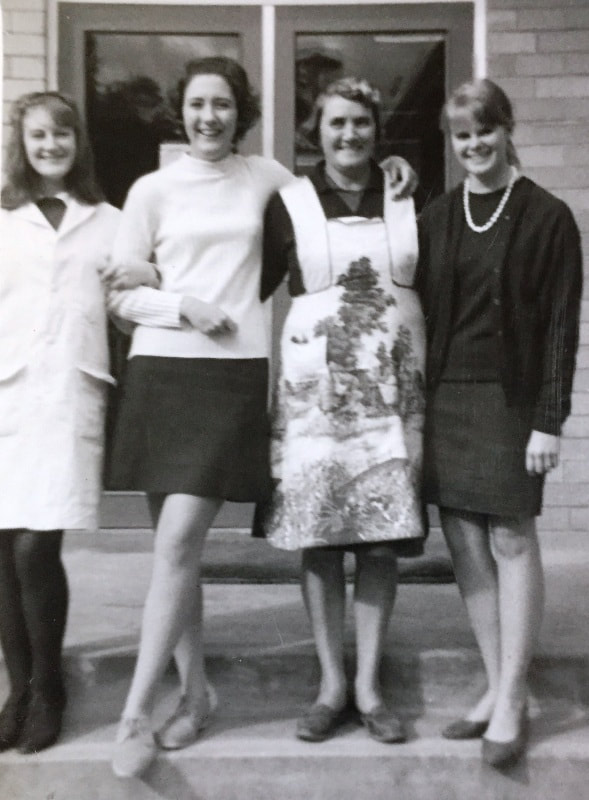Duties varied from switchboard operator to waitressing on the all important Field Days.
Until the new offices were built, Jenny and I shared an office with the clerk. It was a bit cramped especially with the switchboard, which constantly interrupted typing and other work, just behind my desk. There were two external lines and four party lines as well as the individual office phones. There was an extra farm phone on the wall outside the office which was answered mostly by us unless there was another officer nearby. If a call came in for one of the men and they didn’t answer, we had a loudspeaker system to help locate them (we had a bit of fun with this when the boss was away).
All typing was done on Remington typewriters and the mail was taken into town each day by Roy, our mailman, who also collected mail and supplies required from town.
Whenever the Manager needed a letter typed he would take advantage of my shorthand skills, dictate it and I would then have to type it up, get it signed and into the mailbag for Roy to take to town that day.
There were always pages of reports to be typed up, some of them requiring many copies which meant typing them onto wax stencil sheets and churning them out on the Roneo copier. This entailed wrapping the completed stencil around an ink filled roller and turning the handle, flicking it at the end to send the copies out. On completion the messy stencil was discarded, then the same process was used for the rest of the pages. Accuracy was paramount.
I spent two weeks at Head Office at Treasury Gardens to learn the library system, and to further add to my duties I was in charge of stores, requisitioning for stationery and office supplies.
Moving into the new offices was exciting, with plenty of space and a separate reception area.
We even formed a staff Social Club, but that’s another story entirely.


 RSS Feed
RSS Feed
